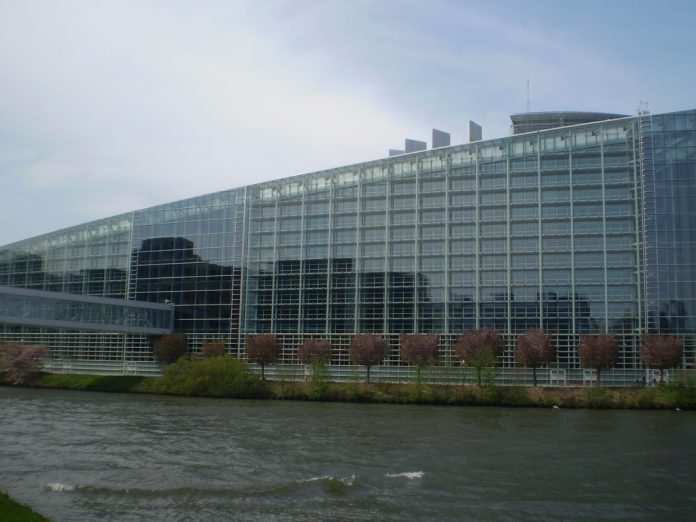Turkey has never been an advanced democracy. Rather, it has been considered as a developing democracy since the 1950s. Parallel to its democracy, the judiciary in Turkey has always been influenced various factors namely the ruling parties and the army. It is still in memories of Turks that Mehmet Mogultay, a former Justice Minister who was on duty in the 1990s, said that “My predecessor from our party recruited 2000 judges and I have recruited 1000 judges. Should all these judges be from Nationalist Party? The smartest thing to do is to appoint your men to the state posts during your rule”. Another scene that is not forgotten is the meetings that judges were gathered by the generals and instructed against the threat of religious groups in Turkey.
In 2005, Turkey was a country facing towards the West and conducting membership negotiations with the European Union. Until the 2010s, the AKP –the ruling Justice and Development Party, who won the elections in 2002 and started to govern Turkey with promises to establish democracy, universal human rights, and free market economy and was using a rhetoric of dialogue and tolerance declaring that they are going to limit government power and strengthen the rule of law and civil society which prioritise individuals over the state– had taken many steps in this direction.
Day after day, the Turkish public had increased their support to the AKP as they had seen the steps taken on the way to modernisation and EU membership. Taken the wind of this public support to its back, the AKP partially amended the Turkish Constitution in 2010 under the motto “More Democracy, More Freedom!” A majority (58%) of Turkish voters said “Yes” to this amendment by running a campaign under the banner, “It’s Not Enough, But Yes!”
This constitutional amendment, which was interpreted as “a sign showing that Turkey is getting closer to European standards” was also apprised by the European countries.
These amendments to the Constitution that both the Western countries and the Turkish public had expected will bring “more democracy and more freedom” unfortunately caused a “hubris syndrome” in the government, to the contrary of all those expectations. After 2010, first the expansion of freedoms came to a halt, then the country started to go backwards in the rule of law, democracy and freedoms.
While the judiciary has always been under the influence of the ruling powers and the army, the European Court of Human Rights plays a role to provide a remedy for the unfairness emanating from Turkey. Many controversial cases were brought before the Strasbourg Court which was considered as insurance of the justice by the Turkish citizens until recently.
In the aftermath of the controversial coup attempt that took place in July 2016, the Turkish government has managed to manipulate the ECtHR according to its own political agenda. Tjorbon Jagland, the Secretary General of the Council of Europe of which the ECtHR is a body, has played an important role for Turkey to manipulate the Court. The case of the State of Emergency Inquiry Commission is an example of his cooperation with the Turkish government to defeat the pursuit of Turkish victims for their rights before the ECtHR. The Turkish government has dismissed nearly 150.000 public servants from their jobs over alleged membership to terror organizations. Without court hearings, dues process and solid evince, these people have been condemned to civil death solely by virtue of Decree Laws. 27.000 of the have applied to the Strasbourg Court to reverse the arbitrary dismissals but they failed. Jagland worked with the Turkish government and offered them to form a commission to examine these cases. At the very beginning, Turkish experts such as Kerem Altiparmak have warned that that commission is a sham and it will not be independent of the government nor effective. But Jagland and Erdogan shook hands to disappoint the purge victims. After formation of the commission, the ECtHR has rejected 27000 applications from Turkey referring to this sham commission. Today, official figures show that the Commission has examined fewer than 5000 cases out of 107.000 applications within nearly one year. Only 100 of the applicants have been reinstated to their jobs. It is clear that the SoE Inquiry Commission isn’t effective nor independent. The High Commissioner on the Human Rights of the UN has also emphasized the ineffective nature of the Commission in his latest report. However, the ECtHR has been rejecting the applications referring to the Commission.
Note that many people’s lives have been ruined because of the dismissals. There are people who have committed suicide just because they couldn’t find a way to afford basic needs of their families. Dismissed officials have also been stigmatized by the society and the government as traitors. They have been banned from working in other sectors and they are not allowed to go abroad to start new lives. Clearly, the ECtHR has responsibility for these tragedies occurring in Turkey which has been ruled by an autocratic government since the aborted coup.
*Dr. Ugur Tok is director of the Platform for Peace & Justice, a Brussels based human rights organization.

